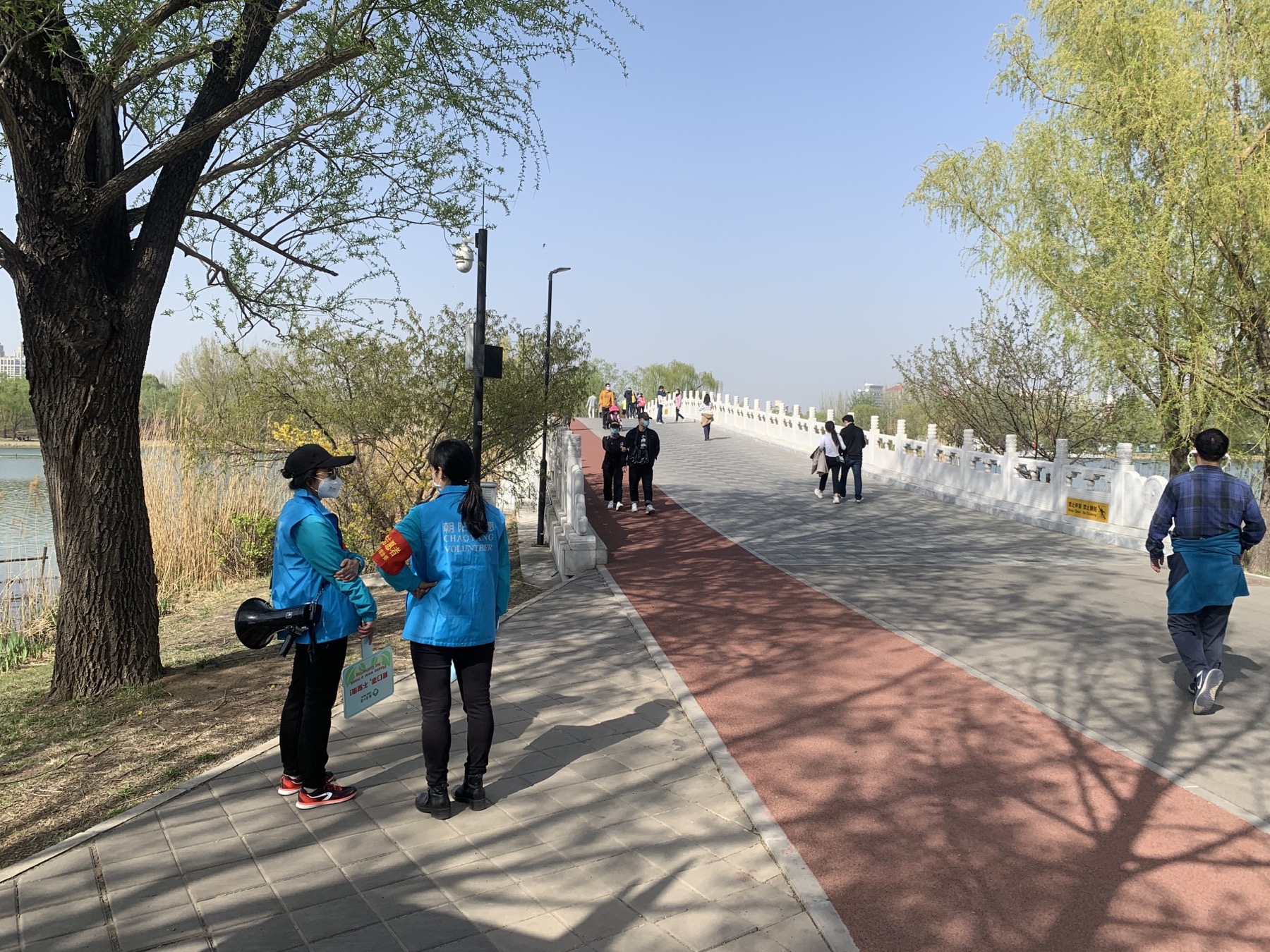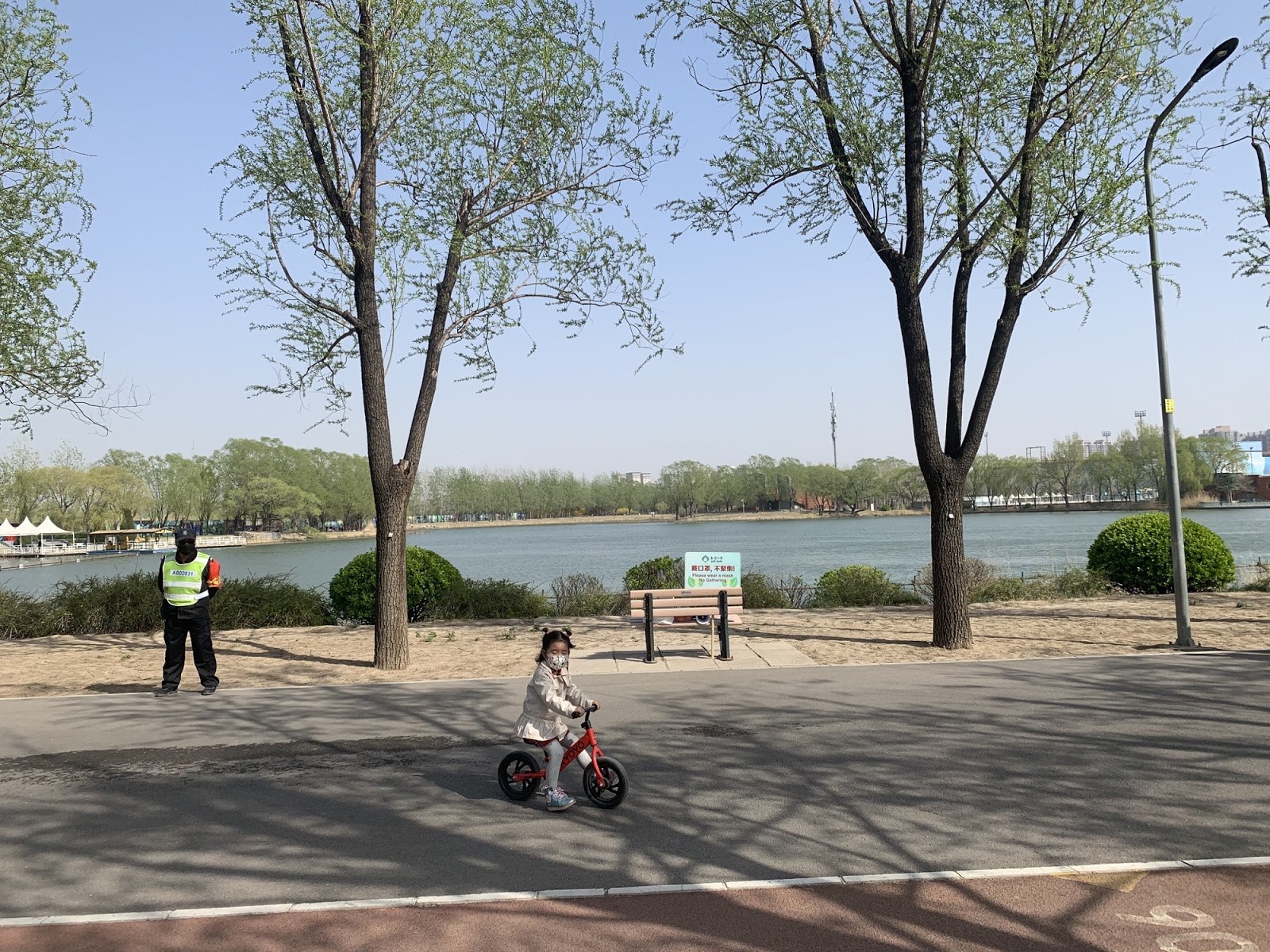As normal as Beijing is going to get, for a while

I’ve been going to Chaoyang Park — Beijing’s version of Central Park, only about 15% smaller — every weekend since the beginning of March, and have watched it gradually fill with people. In the early days, I noticed the elderly, who I’d like to think have survived too much history to want to stay cooped up forever; then there were the middle-aged joggers, unmasked; then the families with children; and then, all of a sudden, everybody: kite flyers, photo seekers, frisbee throwers, picnickers. This period has coincided with the best weather Beijing has seen in 12 years, the most blue skies since the Olympics — and a collective realization of how conditional is our freedom to be outdoors, to congregate, and how decisively it can be taken away.
But if we seem to be basking, I assure you there’s no celebration. Last weekend marked the first time volunteers roved the premises explicitly telling park-goers, including joggers, to put on their masks. This past week, they installed full-body thermal scanners at the entrances, the kind you find at airports, replacing handheld temperature guns. (Ticket check was slowed down a lot.) I’ve implied this before, but this is the new normal we find ourselves in, constantly scanning QR codes and scrutinizing behavior, “safe” from the virus but perhaps not from each other. Speculation is that it will be this way until at least after the Two Sessions political meeting, which hasn’t yet been rescheduled since its March postponement.
I started writing these Monday updates to track the incremental, street-level changes Beijing would go through as its people came out of self-isolation, and think this may be a good place to leave it for now. The people have been out for weeks, and the city is fine — always has been, relatively. (Stephon Marbury is right: “Beijing is the safest place in the world right now by far.”) If you’re living somewhere currently in the thick of this, hang in there for the better days, which will come.
I’ll end with words from someone else, a foreigner in Hubei Province who made a point to tell me two weeks ago that he’s experienced no anti-foreigner bias and doesn’t expect to as long as he’s in the area, considering the hardship everyone there has survived together. For him, that first day in which his compound’s gates opened felt…
…like heaven, reborn, awesome. Like something I remember.
The first time allowed through the gate was like getting out of jail. Two and a half months locked down in a small walled residential complex was rough. Laowai (foreigners) can’t get the new QR health code; passport numbers don’t fit in the online application. You have to get a document from the local authorities, which was relatively painless. So far, every checkpoint just glances at it, takes my temperature, and I’m through. The train stations are set up like field hospitals with registration desks for every province and locale. If you don’t have a code or a letter, you’re in purgatory.
Local noodle shops and businesses all look like a hurricane came through; chaos. A couple days later, it’s still kind of empty. I can get hot and dry noodles; a gift from heaven. The young guys operating the fruit stand out of the garage is gone. It has dark portents for me, no one else talks about it.
It’s still a ghost town during the day, but at night the local square has a smattering of grandparents and little kids. It almost feels normal, but there’s an unease. The old people have been through untold numbers of hardships; you can feel it and see the looks on their faces. Drained, fearful of more. Thankfully, the kids don’t care; they’re doing what kids do.
There was a kid band set up playing on the sidewalk this evening. Everyone was six feet apart, toe-tapping. It almost feels like spring. I’m an old fart, but kids were cool with it. Freedom is grand.
Previously in Update from Beijing:







